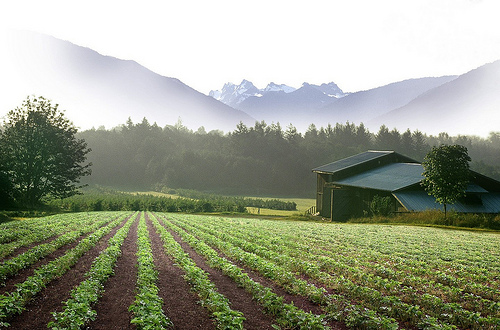
One of Becky’s recent posts raised the question of what separates agroecological farming from organic farming.
Although agroecological farming shares some of the same principals as organic farming, agroecology is not associated with a particular type of agriculture. Conventional and organic farms alike can take an agroecological approach to managing farmland.
What Is Agroecology?
Agroecology views agriculture from a ecological perspective. Farmland, after all, is an ecosystem – a complex network in which every living and nonliving component of the system affects every other component, either directly or indirectly.
This ecosystem view of agriculture considers all of the services provided by farmland to humans – soil health, water quality, air quality, pest control, disease control, biodiversity, and so forth – in addition to food production.
Agroecological farming strives to create stable food production systems that are resilient to environmental perturbations such as climate change and disease. The only way to achieve this goal is to go beyond thinking of farms as linear systems in which inputs (acreage, fertilizer, pesticides, etc.) influence output (food yield), and start treating farmland as complex webs of ecological interactions.
Is Organic Food Agroecological?
Not necessarily. Most of the organic food you see in the grocery store is from industrial operations that do not think ecologically. Instead of managing their farmland as ecosystems, large-scale organic farms focus solely on producing as much food as possible.
Sure, big organic farms don’t use synthetic chemicals, but they do little to manage the ecosystem services provided by farmland. They rely heavily on fossil fuels, erode soils, pollute water supplies, destroy native wildlife habitat, and so forth. Intensive agriculture – even intensive organic agriculture – is generally a pretty environmentally destructive practice.
But if you go beyond the grocery store, you can find food from growers that are trying to manage their farmland as ecosystems. There are plenty of small, alternative farms striving to create sustainable food production systems.
Farms that focus on restoring and maintaining soil health are less dependent on chemical inputs, because plants grown in healthy soil can better access their natural defenses to ward off pests and disease.
Farmers that think ecologically also tend to let their animals do a lot of the work for them. By allowing animals to perform their natural behaviors, farmers can use livestock to enhance the farmland ecosystem.
For instance, chickens can be moved from field to field to clean up vegetable patches before a new crop is planted. In addition to clearing out old vegetation, chickens eat insect pests, aerate the soil as they scratch for food, and leave each patch with an ample dose of fertilizer. Pigs that are allowed to express their inherent piggyness – namely, rooting and wallowing – can be used to till a field or turn manure into compost. Rotating different species of farm animals across pastures can reduce disease-risk in livestock while keeping pastures rich in nutrients and diverse in forage.
To find produce, dairy, or meat from this type of ecoagricultural farm, your best bet is to start talking to local farmers – visit your farmers market or join a CSA.
Can Conventional Farms Be Agroecological?
It’s not just small, alternative farms that are thinking ecologically. Conventional, industrial farms can practice agroecology as well. Some use synthetic chemicals only as a last resort, instead relying on biological management strategies – such as beneficial insect predators, crop rotation, and monitoring of fields for pests – to increase yield. Understanding ecolabels is the best way to determine whether conventional produce is grown agroecologically.
Conventional and organic farms alike can also practice agroecology by setting aside a portion of their farmland for conservation. Restoring farmland to natural habitat increases the number of native plant and animal species on farms, and can also repair important ecosystem functions. Restored land can store atmospheric carbon dioxide, control erosion, detoxify soil, purify water, provide habitat for insect predators that keep pests at bay, and much more.
In a way, agroecology represents a different way of farming. It’s not necessarily organic, and it’s not necessarily conventional. Given how much land use is agricultural and how environmentally destructive agriculture can be, agroecology seems like the best solution to ensure the sustainability of food production and crucial ecosystem services.
Image courtesy of Cascadian Farm via a Creative Commons license.




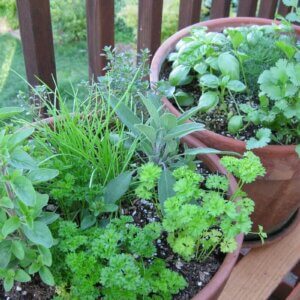
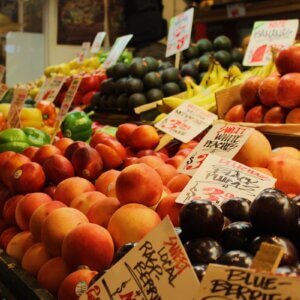












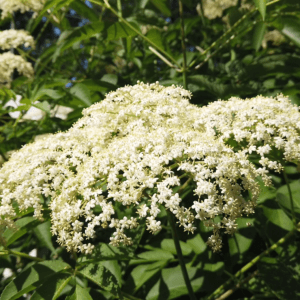


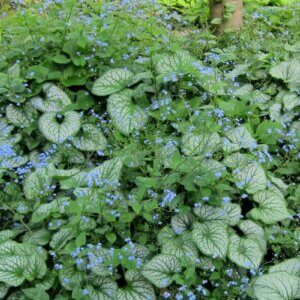
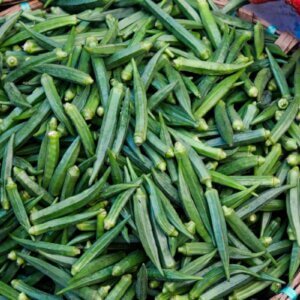


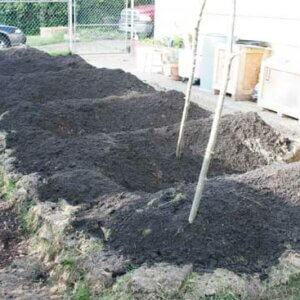
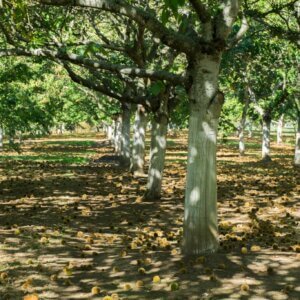



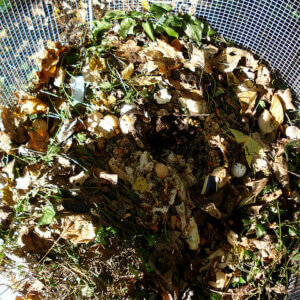
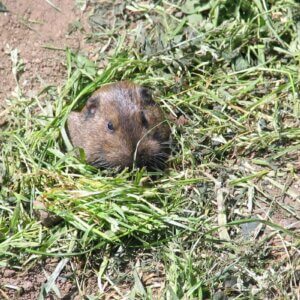
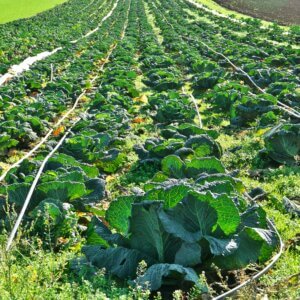


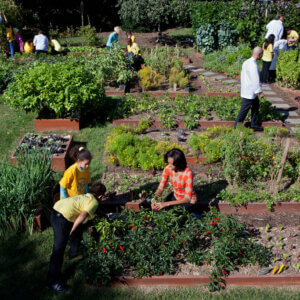

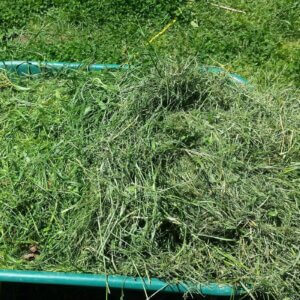




The agroecological/organic community shows promise, but needs to rethink their attitude towards conventional agriculture. Taking an antagonistic approach breeds that same antagonistic attitude on the other side. If you want to see real transition, you need to acknowledge two factors.
First is the role that profit and capitalism play in farmer's decision. Conventional ag folk have been bred for decades to believe that big acreages, big tractors, big inputs and low commodity prices somehow represent 'real' agriculture. If you aren't reading the glossy farm mags, and pulling the latest shiny planter, you aren't a real farmer. If you can convince these farmers (who have the skills and work ethic you need) that real dollars lie in smaller, sustainable ventures, you might be able to sway some of them.
Second, you have to recognize that transitions take time, and not only are the risks financial, but social as well. Let's say a conventional corn farmer decides to put a bit of his corn into pastured poultry. Well he's gonna hear about it from his coffee shop peers. And when he informs the hippies, they're probably going to chide him for using GMO corn in that sustainable poultry, the horror! Well now you given him the could shoulder too, and stopped his transition before it began. But if you buy the birds, and tell him you'll come back next year, you've given him ammo, he can tell the coffee shop know it alls that he just turned his corn into $4 a pound chicken, and laugh all the way to the bank. He may convert to non GMO corn next year, maybe full organic inputs in five years.
I may be conventional wheat and cattle, but I've got grapes, pastured poultry, pastured pigs, and aquaculture shrimp in the works, I'd like to drop the high input, low margin wheat, so give me a chance!
I agree with you that we definitely have to stop thinking about food production in terms of Conventional vs Organic. I think that taking an agroecological perspective can allow organic and conventional farmers alike to farm more sustainably. For instance, even though you are producing wheat and cattle conventionally, it sounds like you are trying to manage your farm as a whole. You're diversifying your crops, raising pastured livestock, and producing shrimp in a sustainable manner (which is more than can be said for most wild shrimp fisheries). By managing your farm as a whole instead of concentrating soley on wheat and cattle output, you are practicing agroecology. What I was trying to convey here is that agroecology does not have to be about pitting the agroecological camp and conventional camp against each other.
And you did a good job of that. Some factors that pull farmers away from the agroecological approach.
Subsidies- Yeah, subsidies promote the limits of commodity agriculture we all know that, but what drives me crazy is the desire to subsidize other crops, or organic methods. No! Subsidies always lead to unintended consequences, and promote uniformity and less innovation.
Regulation- When I started raising a few laying hens my dad waxed poetically about how his folks had hens and every week they and other farmers would take their eggs into town, making a little money. I doubt I have to tell you how hard it is to get locally raised food into a grocery store. It might just be easier to raise GMO corn.
Renting land- Most land owners don't care about the "whole farm approach" they want their rent check. It's up to the farmer to bring in enough income to meet the rent, or lose the farm. This is probably gonna lead to monoculture and commodities.
I could go on, just a few thoughts.
I totally agree on all three points!
You are the best ❤️